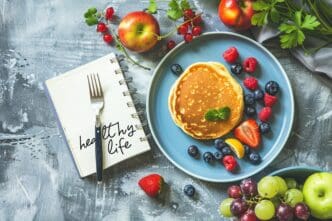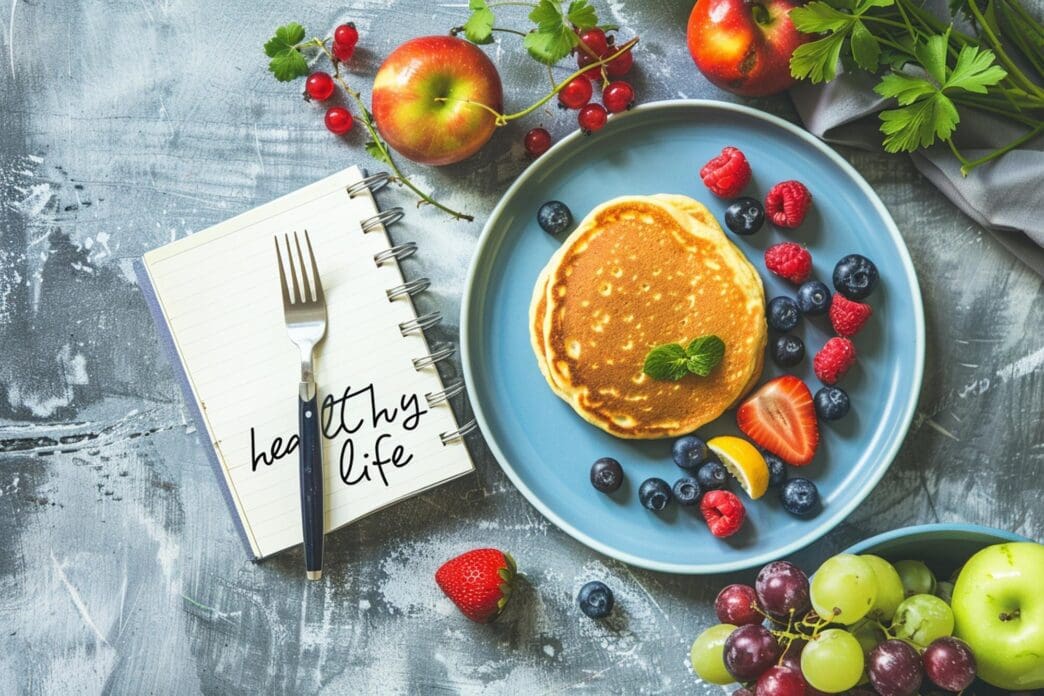A Quick Takeaway
The Story Behind the Trend
How to Make It Work for You
The Community View
Fueling your body with a nutritious and satisfying breakfast is paramount for sustained energy and overall well-being. For anyone seeking a delicious, versatile, and highly beneficial morning meal, especially athletes, busy professionals, and health-conscious individuals, mastering the art of healthy protein pancakes offers an exceptional solution. These nutrient-dense alternatives to traditional pancakes provide sustained energy, support muscle repair, and promote satiety, making them an ideal start to any day right in your home kitchen.
Why Choose Protein Pancakes?
Protein pancakes offer a significant nutritional upgrade over their refined flour counterparts. They are specifically designed to provide a higher protein content, which is crucial for muscle synthesis, repair, and maintaining a feeling of fullness throughout the morning.
Unlike sugary breakfasts that can lead to energy crashes, the balanced macronutrient profile of protein pancakes, combining complex carbohydrates with ample protein and often healthy fats, helps stabilize blood sugar levels. This results in sustained energy release, preventing mid-morning slumps and keeping you focused.
Essential Ingredients for Success
The foundation of a great protein pancake lies in selecting the right ingredients. These components work synergistically to create a fluffy, flavorful, and nutritionally superior breakfast.
Protein Sources
Your choice of protein powder is central to the pancake’s nutritional profile. Whey protein is popular for its complete amino acid profile and quick absorption, ideal for post-workout recovery. Casein protein offers a slower, sustained release, promoting satiety over a longer period.
For those seeking plant-based options, pea protein, soy protein, or a blended plant protein powder work wonderfully, providing essential amino acids and a good texture. You can also boost protein with egg whites, Greek yogurt, or cottage cheese blended into the batter.
Flour Bases
Opting for whole grain or alternative flours enhances fiber content and nutrient density. Whole wheat flour provides a robust, nutty flavor and good structure. Oat flour (made by blending rolled oats) is a popular gluten-free option, offering a slightly chewier texture.
For lower-carb or gluten-free alternatives, almond flour creates a dense, moist pancake, while coconut flour is highly absorbent, requiring more liquid and yielding a softer texture. Experimenting with different flours allows you to customize both flavor and nutritional benefits.
Binders and Leavening Agents
Eggs are commonly used as a binder, providing structure and richness. For vegan options, a flax egg (1 tbsp ground flaxseed mixed with 3 tbsp water, let sit for 5 minutes) works as an excellent substitute. Baking powder and baking soda are essential leavening agents, ensuring your pancakes rise beautifully and achieve that desirable fluffy consistency.
Flavor Enhancers and Sweeteners
Natural flavorings like vanilla extract, cinnamon, nutmeg, or a pinch of salt can significantly elevate the taste. For sweetness, consider mashing a ripe banana into the batter, using unsweetened applesauce, or a touch of natural sweetener like maple syrup or honey in moderation. Sugar-free alternatives like stevia or erythritol can also be used.
Crafting Your Perfect Batter
The mixing process is key to achieving light and airy protein pancakes. Begin by combining all dry ingredients thoroughly in one bowl, ensuring even distribution of protein powder, flour, and leavening agents.
In a separate bowl, whisk together your wet ingredients, including milk (dairy or non-dairy), eggs (or flax egg), and any liquid sweeteners or flavorings. Then, pour the wet mixture into the dry ingredients and mix just until combined.
It is crucial to avoid overmixing the batter, as this can develop the gluten in the flour, leading to tough, rubbery pancakes. A few lumps are perfectly fine. Allowing the batter to rest for 5-10 minutes can also improve the texture, giving the leavening agents time to activate and the flour to hydrate.
Mastering the Cooking Technique
Achieving perfectly cooked protein pancakes requires attention to heat and timing. Preheat a non-stick griddle or frying pan over medium heat; a pan that is too hot will burn the outside before the inside cooks through, while one that is too cool will result in tough, dense pancakes.
Lightly grease the pan with a healthy oil like coconut oil, avocado oil, or a touch of butter. Pour about ¼ cup of batter per pancake onto the hot surface. Cook for 2-3 minutes per side, or until bubbles appear on the surface and the edges look set.
Flip the pancakes carefully with a spatula and cook for another 1-2 minutes until golden brown and cooked through. Resist the urge to press down on the pancakes with your spatula, as this deflates them and makes them less fluffy.
Nutrient-Dense Topping Ideas
The toppings are where you can truly elevate both the flavor and nutritional value of your protein pancakes. Fresh berries like blueberries, raspberries, and strawberries add antioxidants and natural sweetness.
Sliced bananas, kiwi, or peaches offer additional vitamins and fiber. A sprinkle of chopped nuts (walnuts, almonds) or seeds (chia, flax) provides healthy fats and omega-3s. A dollop of Greek yogurt or cottage cheese adds even more protein and a creamy texture.
For a touch of indulgence, a small drizzle of pure maple syrup, honey, or a sugar-free syrup can be added. Nut butters like almond or peanut butter also offer healthy fats and protein, making for a truly satisfying meal.
Customization and Dietary Adaptations
Protein pancakes are incredibly versatile and can be easily adapted to various dietary needs. For gluten-free options, simply use oat, almond, or coconut flour and ensure your protein powder is certified gluten-free.
To make them dairy-free, use plant-based milk (almond, soy, oat) and a plant-based protein powder. For a completely vegan recipe, combine plant-based protein, plant milk, and a flax egg as a binder.
Don’t hesitate to experiment with different flavor profiles by adding cocoa powder for chocolate pancakes, lemon zest for a bright taste, or even finely grated zucchini or carrots for added vegetables and moisture.
Meal Prep for Busy Mornings
For ultimate convenience, protein pancakes are excellent for meal prepping. Make a large batch on the weekend and store them in an airtight container in the refrigerator for up to 3-4 days. For longer storage, freeze individual pancakes between layers of parchment paper in a freezer-safe bag.
Reheat refrigerated pancakes in a toaster, microwave, or lightly oiled pan. Frozen pancakes can go directly into a toaster or oven until warmed through, offering a quick and healthy breakfast solution on even the busiest mornings.
Your Path to a Better Breakfast
Mastering the art of healthy and delicious protein pancakes is more than just learning a recipe; it’s about embracing a versatile, nutritious, and incredibly satisfying way to fuel your day. By understanding the key ingredients and techniques, you can consistently create a breakfast that supports your health goals, keeps you energized, and delights your taste buds. Experiment with flavors, toppings, and dietary adaptations to make this power-packed meal a staple in your healthy lifestyle.







